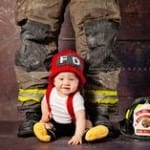In a recent class, I engaged in a discussion with an officer who took exception with my recommendation that firefighters should be taught how to use situational awareness to make good decisions. His contention was that the fire service is a paramilitary organization and firefighters should not be decision-makers.

Further contention was firefighters should obediently follow the orders of their superior officers without question. He asserted that firefighters do not need to know how to conduct a size up, how to develop situational awareness and how to make decisions. He believed those skills should be reserved exclusively for officers.
Paramilitary Design
Fire departments are, and perhaps for good reason, viewed by many as paramilitary organizations. I agree it is important for firefighters to follow appropriate orders given by superior officers. But what should a firefighter do if the order from a superior officer is flawed? Yes, believe it or not, no officer is exempt from error, especially under stress.
Robots
Clearly, some officers (including this officer attending my class) do not appreciate the notion that a firefighter should have the ability to speak up if something is going awry. Other officers have told me (loud and clear) that they would want to know and want their firefighters to speak up (albeit respectfully).
A firefighter t hat is not taught how to make a decision is denied the opportunity to learn the process of decision-making. As such, this firefighter is being denied the opportunity to understand why decisions are made.
hat is not taught how to make a decision is denied the opportunity to learn the process of decision-making. As such, this firefighter is being denied the opportunity to understand why decisions are made.
Firefighters taught HOW to perform a skill without being taught WHY will likely perform physical skills with ease. However, sadly, these firefighters won’t understand why the actions are being taken. They are being treated the equivalent of a toddler. “Sit down, shut up, do as you’re told and don’t question my decisions.”
If not now, then when?
The officer in my class articulated his belief that decision making should only be taught to officers. I guess, from his perspective, a non-thinking firefighter is far less threatening.
If firefighters are not taught the process of how to develop situational awareness as the foundation for good decision making, and are not taught how to be a thinking firefighter, when during their career does this training happen?
I know firsthand that many, if not most, officers are not being taught much about situational awareness. And, for the few that are, much of this training is woefully inadequate. The training on how to make decisions under stress is also inadequate in many departments.
 Some officers have shared with me that they know they have good situational awareness because they “pay attention” and they’ve never had a bad outcome. That mindset is the same mindset I used to have… back when I didn’t know any better.
Some officers have shared with me that they know they have good situational awareness because they “pay attention” and they’ve never had a bad outcome. That mindset is the same mindset I used to have… back when I didn’t know any better.
I was unconsciously incompetent. I didn’t know what I didn’t know about situational awareness and high-stress decision making. I used to think if I paid attention and actively listened to my radio, my situational awareness would be strong. And I learned how to make decisions mostly by trial and error.
The incident command classes I took led me to believe I was learning decision-making. But in all reality, I wasn’t. I was just learning how to follow a script and checkboxes. Rarely was I ever provided the opportunity to assess smoke and fire conditions, building construction and decomposition, speed of changing conditions and survivability profiles of victims before making my GO-GO-GO decisions. Looking back, it’s kind of sad, and I realize how lucky I was that no one got hurt or killed because of my (unconscious) incompetence.
Dr. Gasaway’s Advice
 The best way to develop a skill set is to learn what is to be done and why it is being done first. Then learn how to do it. When this process is used, it leads to the creation of a thinking firefighter. I suppose some officers would not want that because a thinking firefighter can then question bad decisions.
The best way to develop a skill set is to learn what is to be done and why it is being done first. Then learn how to do it. When this process is used, it leads to the creation of a thinking firefighter. I suppose some officers would not want that because a thinking firefighter can then question bad decisions.
Learning how to make a decision is a three-step process:
1. Learn how to develop and maintain situational awareness, especially while operating in high stress, high consequence environments, with changing conditions and time compression.
2. Learn the process for making high risk, high consequence decisions and understand how to use situational awareness as the foundation for that process.
3. Practice making decisions while under stress. It is not difficult to create realistic stressful conditions that mimic real fireground conditions (Hint: That does not mean creating unsafe environments).
Action Items
 1. Discuss how firefighters and officers learn how to develop situational awareness in your department.
1. Discuss how firefighters and officers learn how to develop situational awareness in your department.
2. Discuss how firefighters and officers learn how to make decisions in your department.
3. Create three scenarios where participants are placed under stress and provided the opportunity to make decisions.
_____________________________________________________

If you are interested in taking your understanding of situational awareness and high-risk decision making to a higher level, check out the Situational Awareness Matters Online Academy.
CLICK HERE for details, enrollment options and pricing.
__________________________________
Share your comments on this article in the “Leave a Reply” box below. If you want to send me incident pictures, videos or have an idea you’d like me to research and write about, contact me. I really enjoy getting feedback and supportive messages from fellow first responders. It gives me the energy to work harder for you.
Thanks,

Email: Support@RichGasaway.com
Phone: 612-548-4424
SAMatters Online Academy
Facebook Fan Page: www.facebook.com/SAMatters
Twitter: @SAMatters
LinkedIn: Rich Gasaway
Instagram: sa_matters
YouTube: SAMattersTV
iTunes: SAMatters Radio
iHeart Radio: SAMatters Radio

When officers take a stand on the fire service being a paramilitary organization, and they say that only the officers should be taught decision making, then I begin to see red flags. After serving in the Marine Corps and Air Force I certainly saw bad leaders, but I also saw a number of good ones as well. All too often people equate an authoritarian style of leadership with that taught and used in the military or paramilitary organizations, i.e. do what you’re told, when you’re told to do it, with absolute and unquestioning obedience. Yes, those type of leaders do exist in the military and fire service, but if an individual must constantly use that style of leadership then a problem exists with the person issuing the orders. We absolutely cannot have committee action taking place at the scene of an emergency, but I expect the men and women who work for me to be thinkers and to speak up when they see something wrong. Alford McMichael, former Sergeant Major of the Marine Corps said in his book on leadership, “The first sign of stupidity is when we think we know so much that no one can tell us anything.” There are many things our firefighters need to be taught and a few of the absolute “musts” are leadership, SA, and the ability to make decisions.